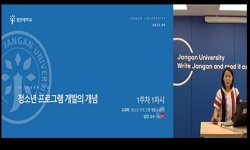This paper assesses the extent to which the conceptualization of gender inequality based on the capability perspective describes equality and development better than the conventional conceptualization. Unlike, the conventional gender inequality indice...
http://chineseinput.net/에서 pinyin(병음)방식으로 중국어를 변환할 수 있습니다.
변환된 중국어를 복사하여 사용하시면 됩니다.
- 中文 을 입력하시려면 zhongwen을 입력하시고 space를누르시면됩니다.
- 北京 을 입력하시려면 beijing을 입력하시고 space를 누르시면 됩니다.
https://www.riss.kr/link?id=A104944914
-
저자
Firehiwot G. Araya (연세대학교) ; 정무권 (연세대학교)
- 발행기관
- 학술지명
- 권호사항
-
발행연도
2014
-
작성언어
English
- 주제어
-
등재정보
KCI등재
-
자료형태
학술저널
-
수록면
35-65(31쪽)
-
KCI 피인용횟수
1
- 제공처
- 소장기관
-
0
상세조회 -
0
다운로드
부가정보
다국어 초록 (Multilingual Abstract)
This paper assesses the extent to which the conceptualization of gender inequality based on the capability perspective describes equality and development better than the conventional conceptualization. Unlike, the conventional gender inequality indices, which fundamentally concentrate on single dimensions or factors that are extrinsic to women, the capability approach bases its ground on the inclusion of various dimensions to capture the nature of inequality and development. Using a revised gender capability index and random effects panel regression, this study examines how gender inequality conceptualized from capability perspective across 75 countries relates with the various dimension of development, and tests its validity to conceptualize development as alternative indicator. The result indicated that the gender inequality can adequately affect poverty head count ratio, child health and multi-dimensional poverty. The findings also revealed the validity of the revised index and the importance of conceptualizing equality from multidimensional perspective to better policy design.
참고문헌 (Reference)
1 Klasen, S., "low schooling for girls, slower growth for all? Cross-country evidence on the effect of gender inequality in education on economic development" 16 (16): 345-373, 2002
2 World Bank, "World Development Report; Gender Equality and Development" The World Bank 2012
3 World Bank, "World Bank data bank"
4 Behrman, J., "Women’s school, home teaching and economic growth" 107 (107): 682-714, 1999
5 George, B., "Women’s economic contribution through their unpaid work: The Case of India" 2009
6 Nussbaum, M. C., "Women and Human Development" Cambridge University Press 2000
7 Qizilbash, M., "Utilitarianism, ‘Adaptation’ and Paternalism. Poverty and Capital" University of Manchester 2007
8 Kristine, B, "The social roles questionnaire: a new approach to measuring attitudes toward gender" 54 : 459-467, 2006
9 Gumbel, D, "The influence of gender inequality on economic growth"
10 Chant, S., "The disappearing of 'Smart Economics' The world development report 2012 on gender equality: some concerns about the preparatory process and the prospects for paradigm change" 12 (12): 198-216, 2012
1 Klasen, S., "low schooling for girls, slower growth for all? Cross-country evidence on the effect of gender inequality in education on economic development" 16 (16): 345-373, 2002
2 World Bank, "World Development Report; Gender Equality and Development" The World Bank 2012
3 World Bank, "World Bank data bank"
4 Behrman, J., "Women’s school, home teaching and economic growth" 107 (107): 682-714, 1999
5 George, B., "Women’s economic contribution through their unpaid work: The Case of India" 2009
6 Nussbaum, M. C., "Women and Human Development" Cambridge University Press 2000
7 Qizilbash, M., "Utilitarianism, ‘Adaptation’ and Paternalism. Poverty and Capital" University of Manchester 2007
8 Kristine, B, "The social roles questionnaire: a new approach to measuring attitudes toward gender" 54 : 459-467, 2006
9 Gumbel, D, "The influence of gender inequality on economic growth"
10 Chant, S., "The disappearing of 'Smart Economics' The world development report 2012 on gender equality: some concerns about the preparatory process and the prospects for paradigm change" 12 (12): 198-216, 2012
11 Frey, S., "The determinants of infant mortality in the less developed countries: a cross national test of five theories" 52 (52): 215-234, 2000
12 Robeyns, I., "The capability approach: an interdisciplinary introduction" 2003
13 Brummet Q., "The Effect of gender inequality on growth: a cross-country empirical study" 16 (16): 13-22, 2008
14 Clark, D. A., "The Capabiity appraoch: its development, critiques and recent advances" 2005
15 Rennie, R., "State Building, security, and social change in Afganistan"
16 Robeyns, I., "Sen's Capability Appraoch and Gender Inequality: Selecting Relevant Capabilities" 9 (9): 61-92, 2003
17 Upendra, Das, R., "Regional trade-FDI-poverty alleviation linkage, some analytical and empirical explorations" 2009
18 Franceschet, S., "Quotas and women’s substantive representation: lessons from Argentina" 4 (4): 393-425, 2008
19 Terry, G., "Poverty reduction and violence against women: Exploring links, assessing impact" 14 (14): 469-480, 2013
20 Klasen S., "Population growth, economic growth, and poverty reduction in Uganda: theory and evidence" University of Goettingen 2005
21 OECD, "OEDC statistics"
22 Goetz, A. M., "No Shortcuts to Power:African Women in Politics and Policymaking" Zed Books 2003
23 Molyneux, M., "Mothers at the service of the new poverty agenda: rogresa/oportunidades, mexico’s conditional transfer programme" 40 (40): 425-449, 2006
24 Greeley, M., "Measurement of poverty and poverty of measurement" 25 (25): 1994
25 Nussbaum, M. C., "Martha Nussbaum and Jonathan Glover, Women, culture and development: A study of human capabilities" Clarendon Press and Oxford University Press 61-104, 1995
26 Kabeer, N., "Mainstreaming gender and poverty eradication in the millennium development goals" Commonwealth Secretariat, International Development Research Centre 2003
27 Gasper, D., "Is sen's capability appraoch an adequate basis for considering human development?" 14 (14): 435-461, 2002
28 OHCHR., "Human Rights and Poverty Reduction: A Conceptual Framework"
29 Quisumbing, A., "Household Decisions, Gender and Development: A Synthesis of Recent Research" IFPRI 2003
30 Dollar, D, "Gender inequality, income, and growth: are good times good for women?" World Bank 1999
31 Kenworthy, L., "Gender inequality in political representation: a worldwide comparative analysis" 78 (78): 235-268, 1999
32 Seitz, V., "Gender equality and poverty reduction through growth, In Principles in to practices series" Millennium Challenge Corporation 2012
33 Kabeer, N, "Gender equality and economic growth: is there a win- win?" IDS 1-58, 2013
34 Moser, A., "Gender and Indicators" Bridge development- gender 2007
35 OECD., "Gender Initiative: Gender Equality in Education, Employment and Entrepreneurship" 2012
36 Chant, S., "Fixing women or fixing the world? ‘smart economics’, efficiency approaches, and gender equality in development" 20 (20): 517-529, 2012
37 World Bank., "Enhancing women’s participation in economic development" World Bank 1995
38 Roberta, W., "Education matters: Study of women's health insurance links educational attainment to coverage"
39 Swiss, L., "Does critical mass matter? Women’s political representation and child health in developing countries" 91 (91): 531-558, 2012
40 Sen, A., "Development as freedom" Alfred Knopf Eds 1999
41 Oosterlaken, I., "Design for Development: A Capability Approach" 25 (25): 91-101, 2009
42 Moyo, D, "Dead AId: Why Aid is not Working and How there is a Better Way for Africa" Douglas and McIntyre 2009
43 Saith, R., "Capabilities: the concept and its operationalisation" Queen Elizabeth House, University of Oxford 2001
44 Martinetti, E. C., "A multidimentional assessment of well-being based on sen's functioning appraoch" (2) : 2000
동일학술지(권/호) 다른 논문
-
- 연세대학교(미래캠퍼스) 빈곤문제국제개발연구원
- 송효진
- 2014
- KCI등재
-
지역사회 재난 리질리언스(Community Disaster Resilience) 연구의 비판적 고찰과 행정학적 제언
- 연세대학교(미래캠퍼스) 빈곤문제국제개발연구원
- 하현상
- 2014
- KCI등재
-
국제개발 재원조달의 다중전환과 공적개발원조의 중심성: 한국적 재해석을 위한 단상
- 연세대학교(미래캠퍼스) 빈곤문제국제개발연구원
- 김태균
- 2014
- KCI등재
-
- 연세대학교(미래캠퍼스) 빈곤문제국제개발연구원
- 김강민
- 2014
- KCI등재
분석정보
인용정보 인용지수 설명보기
학술지 이력
| 연월일 | 이력구분 | 이력상세 | 등재구분 |
|---|---|---|---|
| 2023 | 평가예정 | 재인증평가 신청대상 (재인증) | |
| 2020-01-01 | 평가 | 등재학술지 선정 (재인증) |  |
| 2019-12-01 | 평가 | 등재후보로 하락 (계속평가) |  |
| 2016-01-01 | 평가 | 등재학술지 유지 (계속평가) |  |
| 2012-01-01 | 평가 | 등재학술지 선정 (등재후보2차) |  |
| 2011-01-01 | 평가 | 등재후보 1차 PASS (등재후보1차) |  |
| 2010-06-07 | 학회명변경 | 한글명 : 지역발전연구소 -> 빈곤문제국제개발연구원영문명 : Institute for Regional Studies and Development -> Institute for Poverty Alleviation and International Development: IPAID |  |
| 2009-06-29 | 학회명변경 | 영문명 : Institute for Area Studies and Development -> Institute for Regional Studies and Development |  |
| 2009-01-01 | 평가 | 등재후보학술지 선정 (신규평가) |  |
학술지 인용정보
| 기준연도 | WOS-KCI 통합IF(2년) | KCIF(2년) | KCIF(3년) |
|---|---|---|---|
| 2016 | 0.47 | 0.47 | 0.45 |
| KCIF(4년) | KCIF(5년) | 중심성지수(3년) | 즉시성지수 |
| 0.43 | 0.37 | 0.711 | 0.05 |




 DBpia
DBpia







